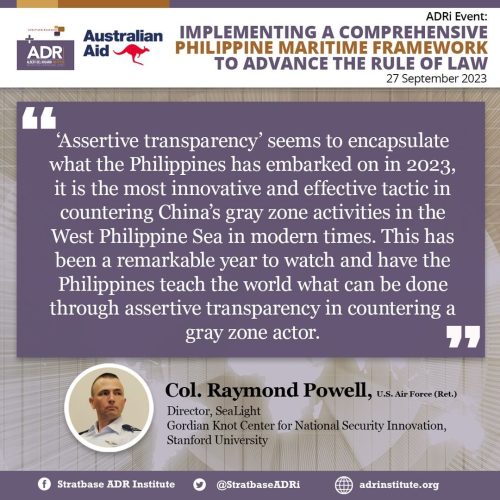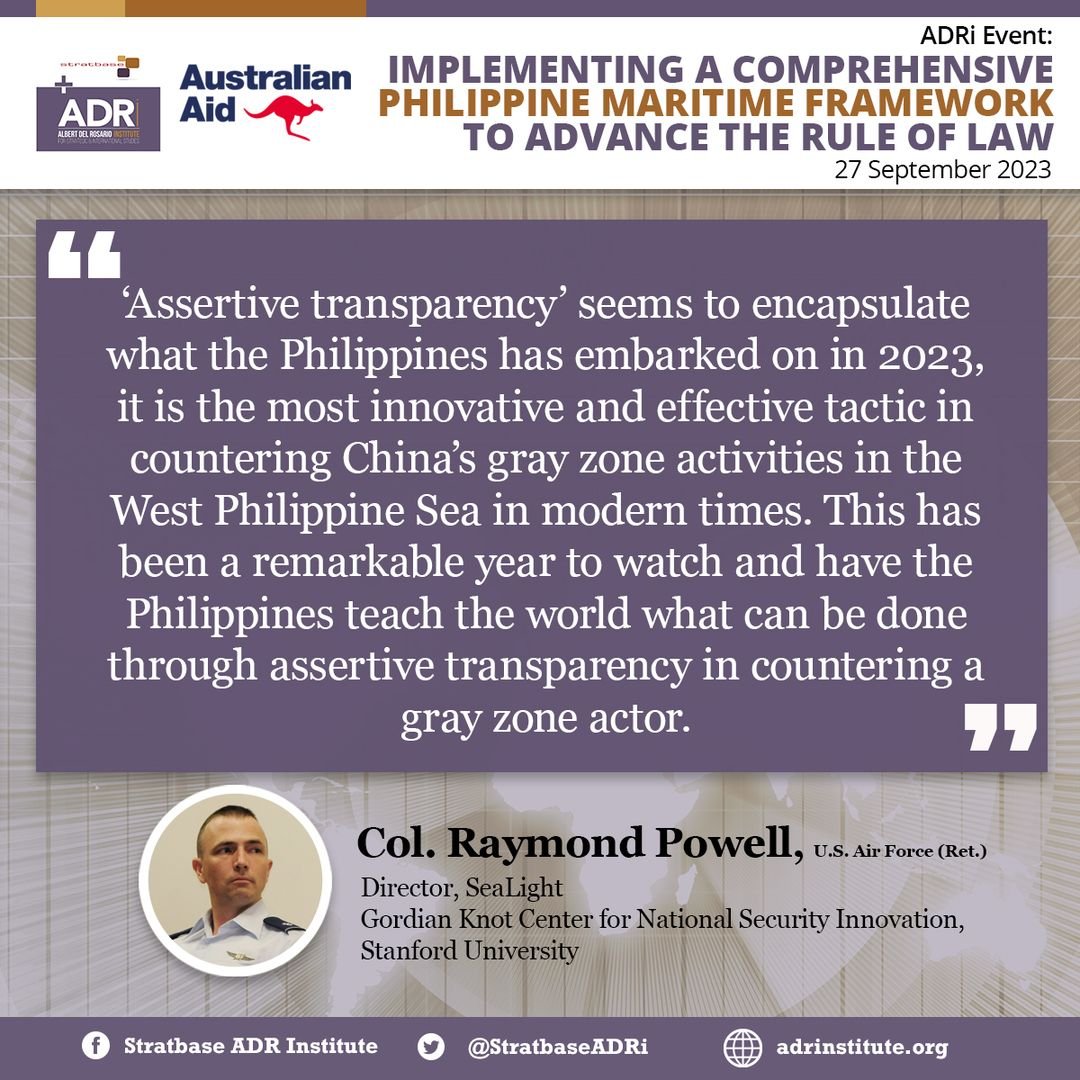TLDR: The Philippines is subject to hostile moves in its economic zone in the South China Sea from the Chinese. They are fighting back with “grey zone” tactics using a whole-of-government approach, in this case citing environmental damage which brings international condemnation.
The Philippines is working on tweaking and updating its current “national strategy on the West Philippine Sea” amid rising tensions in the area.
“The current strategy now is working, but it’s just an improvement… it’s a whole of government approach to issues,” said Vice Admiral Alberto Carlos, commander of the Armed Forces of the Philippines (AFP) Western Command (WesCom) in a forum on Wednesday, September 27.
The WesCom, as Carlos describes it, is the “the frontliner in enforcing the 2016 Arbitral ruling,” which quashed China’s sweeping claim over almost all of the South China Sea, including parts that are within the Philippines’ exclusive economic zone (EEZ).
His command has witnessed the rising tensions in the West Philippine Sea, brought about by China’s assertion of its claims there through so-called “grey zone tactics.”
Grey zone tactics refer to acts of aggression that stop short of actual military action. They include harassing Philippine ships, using water cannons, and other “dangerous maneuvers.”
Philippines using non-military responses
It was Carlos who first made public allegations that the marine ecosystem in Rozul Reef and Escoda Shoal appeared damaged following the presence of China ships in the area.
The Philippine Coast Guard (PCG), another agency that’s manning up against China’s aggressive actions, later confirmed through an underwater survey apparent damage to the coral reef in the area after Chinese military militia ships were spotted there.
External threats
In mid-August, the Philippines released its National Security Policy for 2023 to 2028, which put emphasis on external threats, including tensions in the West Philippine Sea, tensions in the Taiwan Strait and the Korean peninsula, and Russia’s war against Ukraine.
Another Navy official, Commodore Roy Vincent Trinidad, deputy commander of the Philippine Fleet, said the country’s approach to tensions in the West Philippine Sea and China goes beyond just the military.
“The beauty right now is that we have the consciousness of the nation, that is, it is not only the military’s responsibility to take care of the West Philippine Sea,” said Trinidad in the same forum.

The Philippines is working on tweaking and updating its current “national strategy on the West Philippine Sea” amid rising tensions in the area.
“The current strategy now is working, but it’s just an improvement… it’s a whole of government approach to issues,” said Vice Admiral Alberto Carlos, commander of the Armed Forces of the Philippines (AFP) Western Command (WesCom) in a forum on Wednesday, September 27.
More here.
